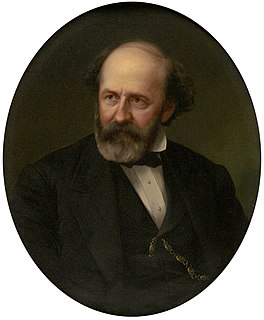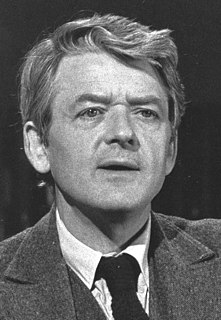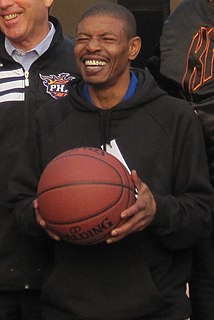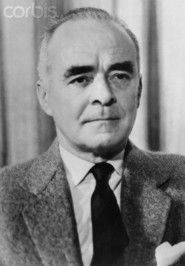A Quote by Collis Potter Huntington
Mark Hopkins was one of the truest and best men that ever lived. He had a keen analytical mind; was thoroughly accurate, and took general supervision of the books, contracts, etc. He was strictly the office man, and never bought or sold anything. I always felt when I was in the East that our business in his hands was entirely safe.
Related Quotes
One can't prescribe books, even the best books, to people unless one knows a good deal about each individual person. If a man is keen on reading, I think he ought to open his mind to some older man who knows him and his life, and to take his advice in the matter, and above all, to discuss with him the first books that interest him.
The reason why so few good books are written is, that so few people that can write know anything. In general an author has always lived in a room, has read books, has cultivated science, is acquainted with the style and sentiments of the best authors, but he is out of the way of employing his own eyes and ears. He has nothing to hear and nothing to see. His life is a vacuum.
I am a product of endless books. My father bought all the books he read and never got rid of any of them. There were books in the study, books in the drawing room, books in the cloakroom, books (two deep) in the great bookcase on the landing, books in a bedroom, books piled as high as my shoulder in the cistern attic...In the seemingly endless rainy afternoons I took volume after volume from the shelves. I had always the same certainty of finding a book that was new to me as a man who walks into a field has of finding a new blade of grass.
Samuel Beckett is the person that I read the most of - certainly the person whose books I own the most of. Probably 800 or 900, maybe 1,000 books of just Samuel Beckett. By him, about him, in different languages, etc. etc. Notebooks of his, letters of his that I own, personal letters - not to me, but I bought a bunch of correspondence of his. I love his humor, and I'm always blown away by his syntax and his ideas. So I keep reading those.
Let it stand, therefore, as an indubitable truth, which no engines can shake, that the mind of man is so entirely alienated from the righteousness of God that he cannot conceive, desire, or design any thing but what is wicked, distorted, foul, impure, and iniquitous; that his heart is so thoroughly envenomed by sin that it can breathe out nothing but corruption and rottenness; that if some men occasionally make a show of goodness, their mind is ever interwoven with hypocrisy and deceit, their soul inwardly bound with the fetters of wickedness.
I closed my eyes and he kissed my eyelids, barely brushing them with his lips. I felt safe, at home. I felt as if here, against his body, was the only place in which I belonged. The only place I had ever wanted to be. We lay in silence for a while, holding each other, our skin merging, our breathing synchronized. I felt as if silence might allow the moment to last for ever, which would still not be enough.
The sun hides not the ocean, which is the dark side of this earth, and which is two thirds of this earth. So, therefore, that mortal man who hath more of joy than sorrow in him, that mortal man cannot be true-- not true, or undeveloped. With books the same. The truest of all men was the Man of Sorrows, and the truest of all books is Solomon’s, and Ecclesiastes is the fine hammered steel of woe.
Though neither happiness nor respect are worth anything, because unless both are coming from the truest motives, they are simply deceits. A successful man earns the respect of the world never mind what is the state of his mind, or his manner of earning. So what is the good of such respect, and how happy will such a man be in himself? And if he is what passes for happy, such a state is lower than the self-content of the meanest animal.
Teach him to live rather than to avoid death: life is not breath, but action, the use of our senses, our mind, our faculties, every part of ourselves which makes us conscious of our being. Life consists less in length of days than in the keen sense of living. A man maybe buried at a hundred and may never have lived at all. He would have fared better had he died young.


































